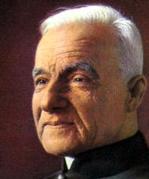Catechism of the Catholic Church
1204 The celebration of the liturgy, therefore, should correspond to the genius and culture of the different peoples. 70 In order that the mystery of Christ be "made known to all the nations . . . to bring about the obedience of faith," 71 it must be proclaimed, celebrated, and lived in all cultures in such a way that they themselves are not abolished by it, but redeemed and fulfilled: 72 It is with and through their own human culture, assumed and transfigured by Christ, that the multitude of God's children has access to the Father, in order to glorify him in the one Spirit.
1205 "In the liturgy, above all that of the sacraments, there is an immutable part, a part that is divinely instituted and of which the Church is the guardian, and parts that can be changed, which the Church has the power and on occasion also the duty to adapt to the cultures of recently evangelized peoples." 73
1206 "Liturgical diversity can be a source of enrichment, but it can also provoke tensions, mutual misunderstandings, and even schisms. In this matter it is clear that diversity must not damage unity. It must express only fidelity to the common faith, to the sacramental signs that the Church has received from Christ, and to hierarchical communion. Cultural adaptation also requires a conversion of heart and even, where necessary, a breaking with ancestral customs incompatible with the Catholic faith." 74
IN BRIEF:
1207 It is fitting that liturgical celebration tends to express itself in the culture of the people where the Church finds herself, though without being submissive to it. Moreover, the liturgy itself generates cultures and shapes them.
1208 The diverse liturgical traditions or rites, legitimately recognized, manifest the catholicity of the Church, because they signify and communicate the same mystery of Christ.
1209 The criterion that assures unity amid the diversity of liturgical traditions is fidelity to apostolic Tradition, i e., the communion in the faith and the sacraments received from the apostles, a communion that is both signified and guaranteed by apostolic succession.
NOTES:
1 Rev 4:2, 8; Isa 6:1; cf. Ezek 1:26-28.
2 Rev 5:6; Liturgy of St. John Chrysostom, Anaphora; cf. Jn 1:29; Heb 4:14-15; 10:19-2.
3 Rev 22:1; cf. 21:6; Jn 4:10-14.
4 Cf. Rev 4-5; 7:1-8; 14:1; Isa 6:2-3.
5 Rev 6:9-11; Rev 21:9; cf. 12.
6 Rev 7:9.
7 SC 26.
8 SC 27.
9 LG 10; cf. I Pet 2:4-5.
10 Cf. LG 10; 34; PO 2.
11 SC 14; Cf. I Pet 2:9; 2:4-5.
12 Rom 12:4.
13 Cf. PO 2; 15.
14 SC 29.
15 SC 28.
16 Cf. Wis 13:1; Rom 1:19f; Acts 14:17.
17 Cf. Lk 8:10.
18 Cf. Jn 9:6; Mk 7:33ff.; 8:22ff.
19 Cf. Lk 9:31; 22:7-20.
20 SC 112.
21 Eph 5:19; St. Augustine, En. in Ps. 72,1: PL 36, 914; cf. Col 3:16.
22 SC 112 § 3.
23 Cf. SC 112.
24 St. Augustine, Conf. 9, 6, 14: PL 32, 769-770.
25 Cf. SC 119.
26 SC 118; 121.
27 St. John Damascene, De imag. 1, 16: PG 96: 1245-1248.
28 Council of Nicaea II (787): COD 111.
29 Heb 12:1.
30 Cf. Rom 8:29; I Jn 3:2.
31 Council of Nicaea II: DS 600.
32 St. John Damascene, De imag. 1, 27: PG 94, 1268A, B.
33 SC 102.
34 Cf. Mt 6:11; Heb 3:7-4:11; Ps 95:7.
35 St. Hippolytus, De pasch. 1-2 SCh 27, 117.
36 SC 106.
37 Byzantine liturgy.
38 Cf. Jn 21:12; Lk 24:30.
39 St. Jerome, Pasch.: CCL 78, 550.
40 SC 106.
41 Fanqith, The Syriac Office of Antioch, vol. VI, first part of Summer, 193 B.
42 Lk 4:19.
43 St. Athanasius (ad 329) ep. fest. 1: PG 24, 1366.
44 SC 103.
45 SC 104; cf. SC 108, 111.
46 Cf. SC, Ch. IV, 83-101.
47 SC 84; I Thess 5:17; Eph 6:18.
48 SC 98.
49 SC 84.
50 SC 83.
51 SC 100; Cf. 86; 96; 98; PO 5.
52 SC 90.
53 Jn 4:24.
54 I Pet 2:4-5.
55 2 Cor 6:16.
56 Cf. DH 4.
57 PO 5; Cf. SC 122-127.
58 Cf. SC 7.
59 Cf. Heb 13:10.
60 Cf. GIRM 259.
61 Paul VI, Mysterium Fidei: AAS (1965) 771.
62 Cf. SC 128.
63 GIRM 271.
64 GIRM 272.
65 Rev 21:4.
66 Cf. Paul VI, EN 63-64.
67 2 Tim 1:14 (Vulg.).
68 Cf. LG 23; UR 4.
69 SC 4.
70 Cf. SC 37-40.
71 Rom 16:26.
72 Cf. CT 53.
73 John Paul II, Vicesimus quintus annus, 16; cf. SC 21.
74 John Paul 11, Vicesimus quintus annus, 16.
Notes:
English Translation of the Cathechism of the Catholic Church for the United States of America © 1997, United States Catholic Conference, Inc.






